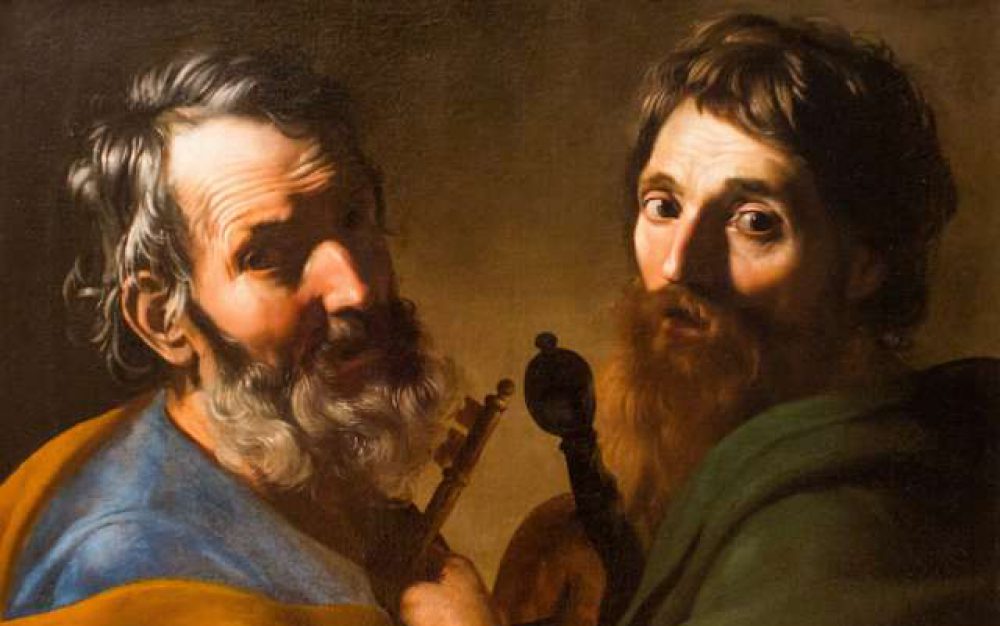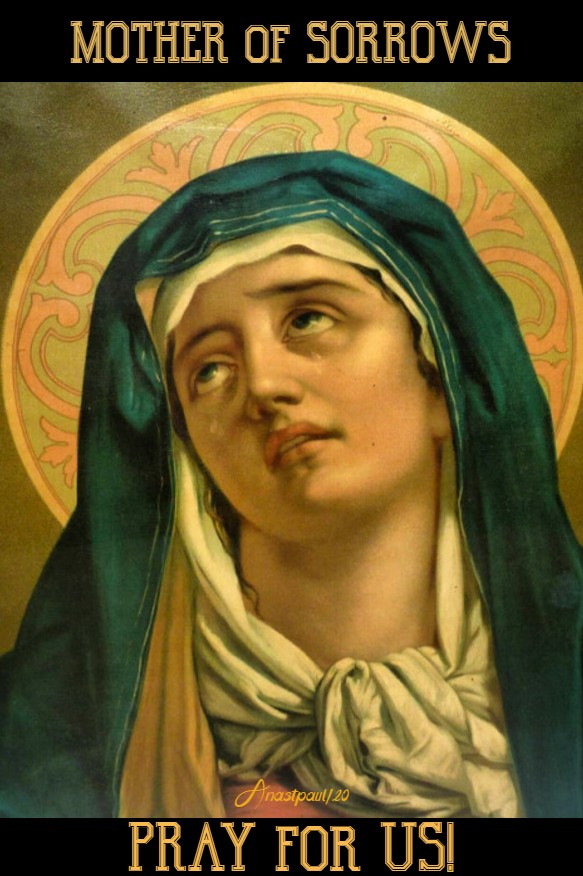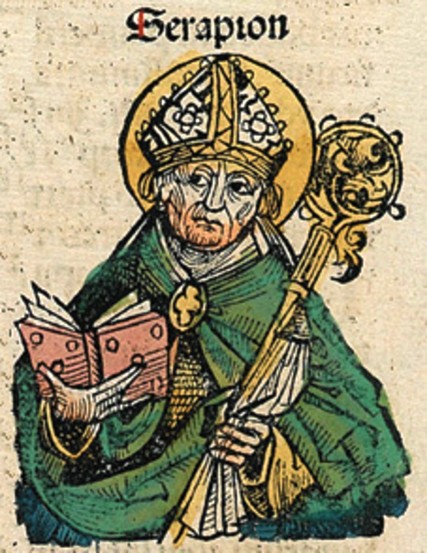Saint of the Day – 21 March – Saint Serapion the Scolastic (Died c 354-370) Bishop of Thmuis, near Diospolis in the Nile delta of Egypt, Monk and Hermit, Confessor, brilliant Scholar of great learning, theologian, writer, a companion to St Anthony, the Desert Father and a close friend of St Athanasius and gave support to him against the heretic Arians in Egypt, for which action he was exiled. Died in c 365-370 of natural causes while in exile in Egypt. Also known as Serapion of Thmuis, Serapion the Scholar.
The surname of the Scholastic, which was given him, is a proof of the reputation which he acquired, by his penetrating genius and by his extensive learning, both sacred and profane. He presided for some time in the catechetical school of Alexandria but, to apply himself more perfectly to the science of the saints, to which he had always consecrated himself, his studies and his other actions, he retired into the desert and became a bright light in the monastic state.
Saint Athanasius assures us, in his life of Saint Antony, that in the visits which Serapion paid to that illustrious Father of Hermits, Saint Antony often spoke of things which passed in Egypt at a distance, of which he had gained supernatural knowledge. St Athanasius tells too, that St Anthony bequeathed after his death, one of his tunics of hair to Serpaion.
Serapion was drawn out of his retreat, to be placed in the Episcopal See of Thmuis, a famous City of Lower Egypt, near Diospolis. The name in the Egyptian tongue signified ‘a goat,’ which animal, as St Jerome informs us, was anciently worshipped there.
Serapion was closely linked with St Athanasius in the defence of the Catholic faith—for which he was banished by the Emperor Constantius; whence Saint Jerome styles him as confessor. Certain persons, who confessed God, the Son consubstantial with the Father, denied the divinity of the Holy Ghost. This error was no sooner broached but our saint strenuously opposed it and informed Saint Athanasius of this new inconsistent blasphemy and that zealous defender of the adorable mystery of the Trinity, the fundamental article of the Christian faith, wrote against this rising monster.
The four letters which Athanasius wrote to Serapion, in 359, when in exile, were the first express confutation of the Macedonian heresy that were published. Serapion, though separated from Athanasius, continued the fight, to great advantage, against both the Arians and Macedonians.
He also compiled an excellent book against the Manichees, in which he shows that our bodies may be made the instruments of good and that our souls may be perverted by sin; that there is no creature of which a good use may not be made and that both just and wicked men, are often changed, the former by falling into sin, the latter by becoming virtuous. It is, therefore, a self-contradiction to pretend with the Manichees that our souls are the work of God but our bodies of the devil, or the evil principle.
Saint Serapion wrote several learned letters and a treatise on the Titles of the Psalms, quoted by Saint Jerome, which are now lost. He was also the author of a series of writings on the Doctrine of the Divinity of the Holy Spirit (addressed to the Emperor).
At his request, Saint Athanasius composed several of his works against the Arians and so great was his opinion of our saint, that he desired him to correct, or add to them what he thought wanting.
Socrates relates that Saint Serapion gave an precis of his own life and an abridged rule of Christian perfection in very few words, which he would often repeat, saying: “The mind is purified by spiritual knowledge, (or by holy meditation and prayer,) the spiritual passions of the soul by charity, and the irregular appetites by abstinence and penance.”
Serapion died in his banishment and is commemorated on this day in the Roman Martyrology, which states of him: “At Alexandria, the blessed Serapion, anchorite and Bishop of Thmuis, a man of great virtue, who, being forced into exile by the enraged Arians, went to heaven.”















You must be logged in to post a comment.